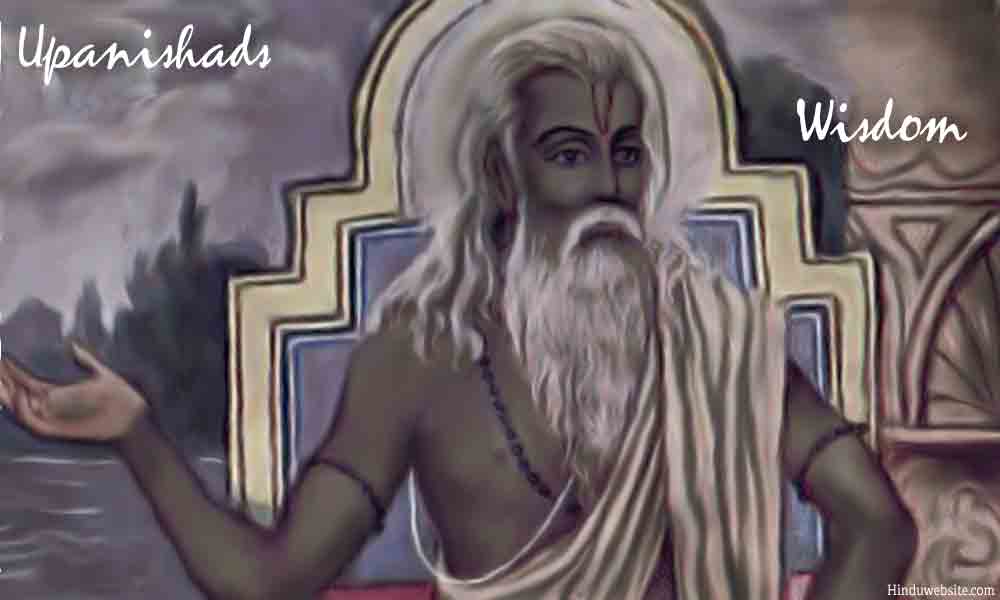
Vidya and Avidya in Brihadaranyaka Upanishad

In the fourth chapter of the Brihadaranyaka there is the following verse.
10. andham tamah pravisanti ye vidyam upasate tato bhuya iva te tamah ya u vidyayam ratah.
It has been translated in the following manner by many scholars to suggest that those who pursue ignorance enter into darker hells and those purpose knowledge enter into even much darker worlds. Even I translated it in my book in the same manner, "Into blinding darkness enter those who worship ignorance; into greater darkness enter those who, as it were, take delight in knowledge."
However, close scrutiny reveals that there is no mention of avidya (ignorance) in this sloka. Both times the reference is to vidya (knowledge) only. it does not make sense that the pursuit of knowledge would lead to a darker world, unless that knowledge tend to make us more this worldly and desire-ridden.
On a cursory glance, the traditional interpretation does not make much sense. It seems paradoxical that that one should pursue both ignorance and knowledge at the same time to achieve liberation. How can one purse knowledge and ignorancea t the same time? Most importantly, how can the pursuit of knowledge lead anyone to a darker world? This confusion arises because we are using knowledge and ignorance in the traditional sense.
The Vedic interpretation of the verse seems to be different. It appears that it has been translated and interpreted rather wrongly by many scholars. In my opinion, the correct translation should read as this, " Into blinding darkness enter those who worship the (mantra) vidyas. Into greater darkness enter those who take delight in the (brahma) vidyas."
What are Vidyas?
The Vidyas were an important aspect of the study of the Vedas in the ancient world. Literally speaking, vidya means a branch of Vedic study. The students had to master various Vidyas before they took leave from their teachers. There were Vidyas associated with rituals, called mantra vidyas. Each mantra vidya was meant to produce a specific result or ward off a specific evil. The Brahmanas specialized in them.
Then there were several (over 40 or 50) brahma vidyas associated with the study of Brahman, which were meant to increase the students' knowledge of Brahman and gain an insight into the subject. I have dedicated an entire chapter to the subject of Brahma vidyas in my book Brahman. Both were pursued at the mental and intellectual level. Both were part of the occupational knowledge of a Brahmana.
Such studies in the specific ritual and spiritual aspects of the Vedas do not lead to self-realization, because they are worldly pursuits meant to enhance one's knowledge and stature in society rather than spirituality. Worshipping gods ritually to fulfill desires and taking delight in the intellectual knowledge arising from the study of scriptures, both are detrimental to one's spiritual wellbeing.
Hence the verse clearly emphasizes that one should not mistake these specific branches of Vedic study or the mantravidyas and Brahmavidyas as the true knowledge of Brahman. True knowledge of Brahman comes from knowing the Self. This is confirmed clearly in the same chapter of the Upanishad, two verses later.
Suggestions for Further Reading
- The Wisdom of the Isa Upanishad
- Isa Upanishad On The Importance Of Duty
- Knowing Atman, the Imperishable Self - Part 1
- What is Jnana or Knowledge? Free Knowledge and Cheap Knowledge
- The Isa Or Isavasya Upanishad, Translation and Commentary
- An Important Lesson From the Mahabharata
- Beware the Gods are Here
- God and Self and Their Relationship in Hinduism
- Aspects, Emanations, Incarnations and Forms of God in Vaishnava Tradition
- Symbolic Significance of Numbers in Hinduism
- Reasons For Idol Worship in Hinduism,
- Vidya and Avidya in Brihadaranyaka Upanishad
- The Wisdom of the Isa Upanishad
- Isa Upanishad On The Importance Of Duty
- Jnana, Knowledge in Hinduism
- Wisdom of the Katha Upanishad
- Kena Upanishad on the Limits of Knowledge
- Self-knowledge Beyond the Mind
- Self-Realization, Atma Bodha, in Hinduism
- Sex and Spirituality in the Upanishads
- The Origin And Development Of Karma Doctrine In Hinduism
- The Wisdom of the Upanishads, Main Page
- Brahman, The Highest God Of Hinduism
- Essays on The Upanishads
- Upanishads and Their Philosophy - Links
- Introduction to the Upanishads of Hinduism
- Minor Upanishads
- Essays On Dharma
- Esoteric Mystic Hinduism
- Introduction to Hinduism
- Hindu Way of Life
- Essays On Karma
- Hindu Rites and Rituals
- The Origin of The Sanskrit Language
- Symbolism in Hinduism
- Essays on The Upanishads
- Concepts of Hinduism
- Essays on Atman
- Hindu Festivals
- Spiritual Practice
- Right Living
- Yoga of Sorrow
- Happiness
- Mental Health
- Concepts of Buddhism
- General Essays